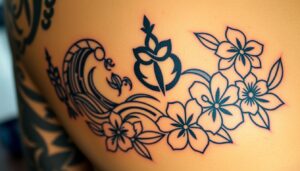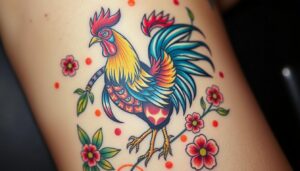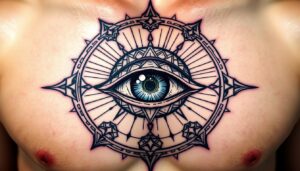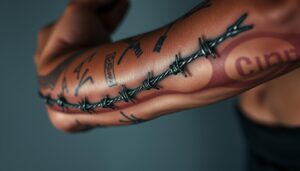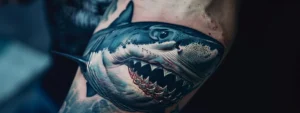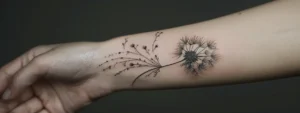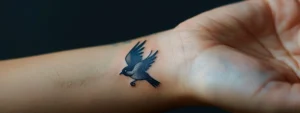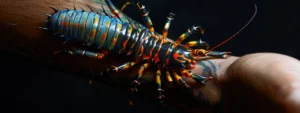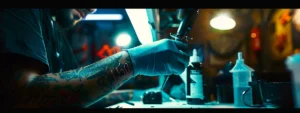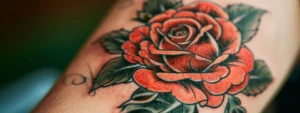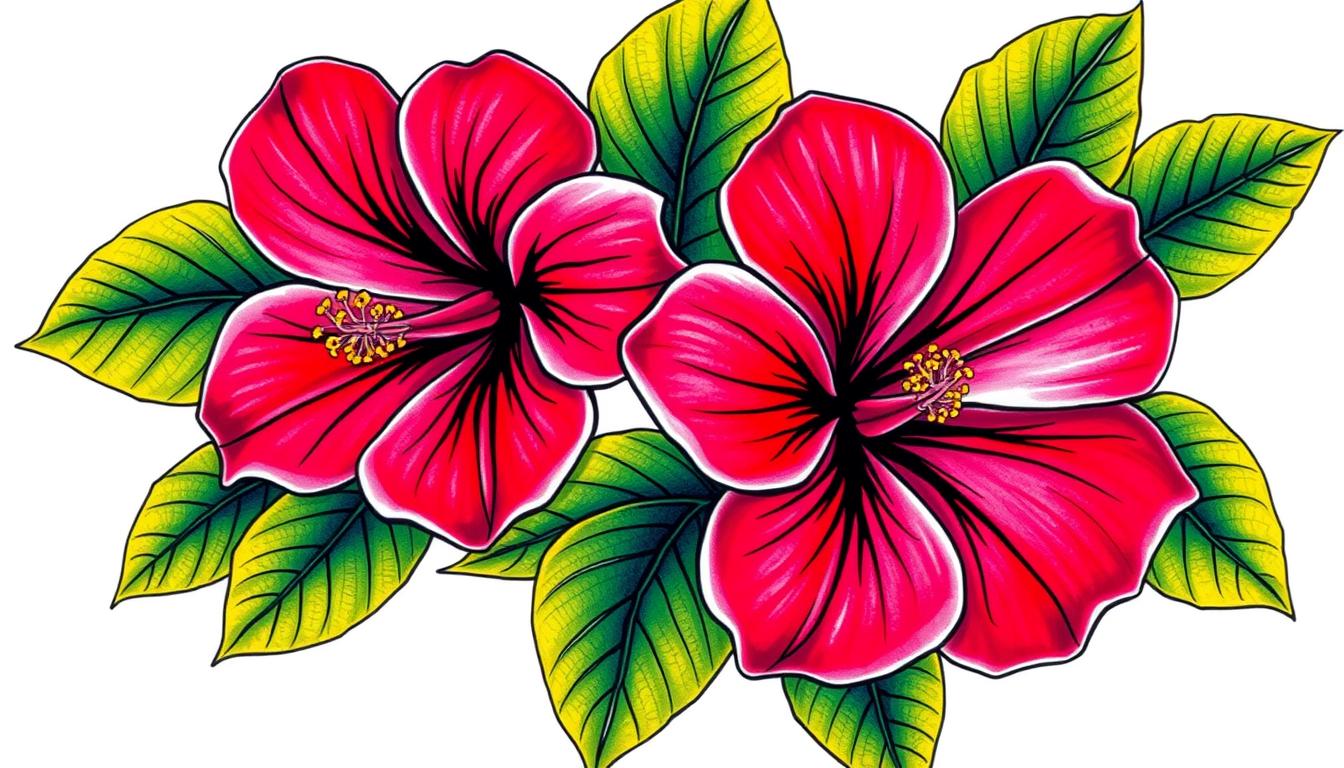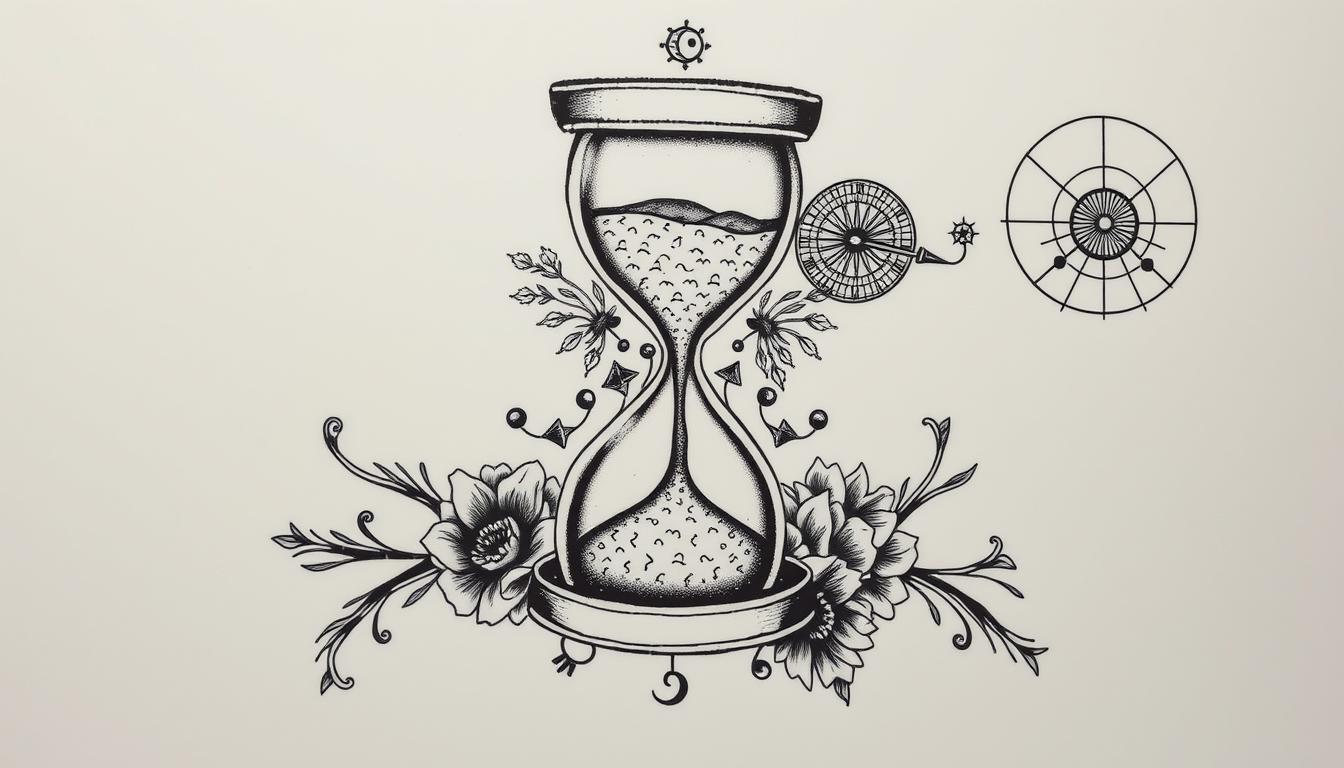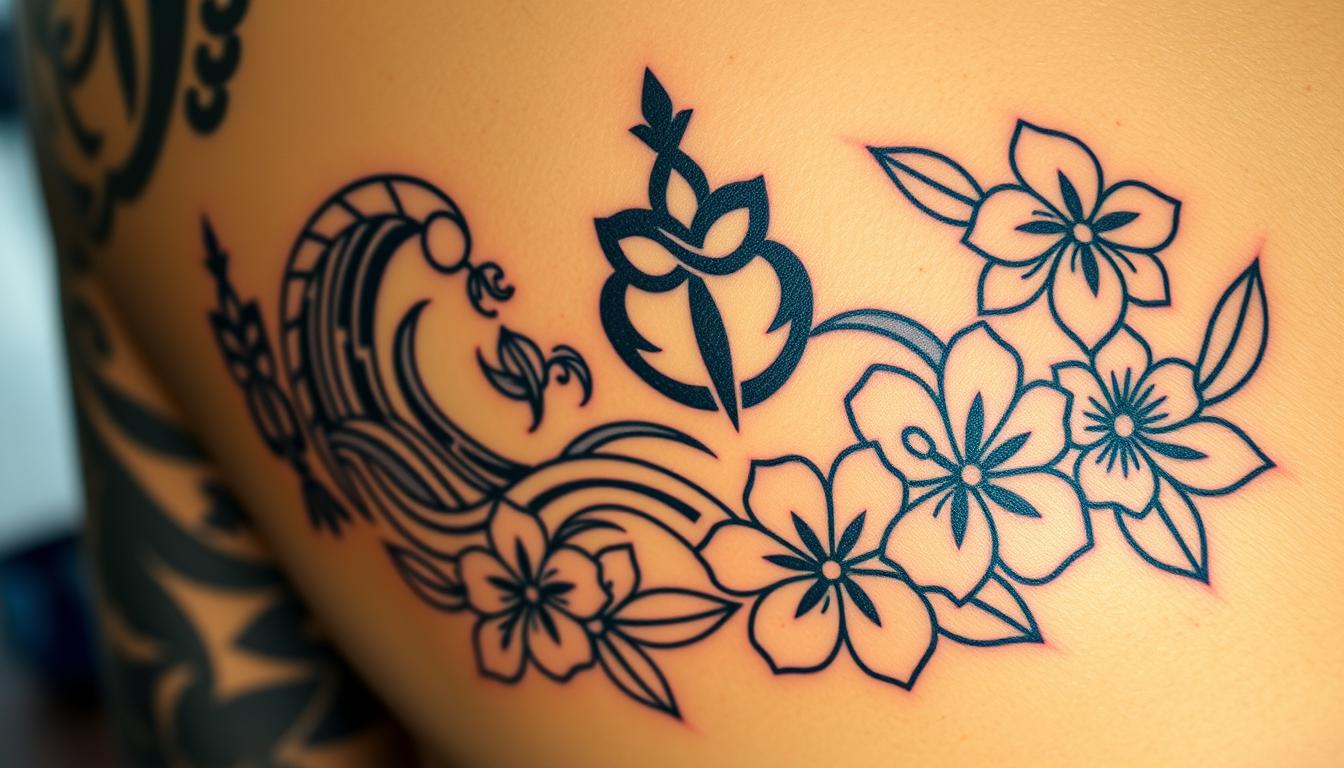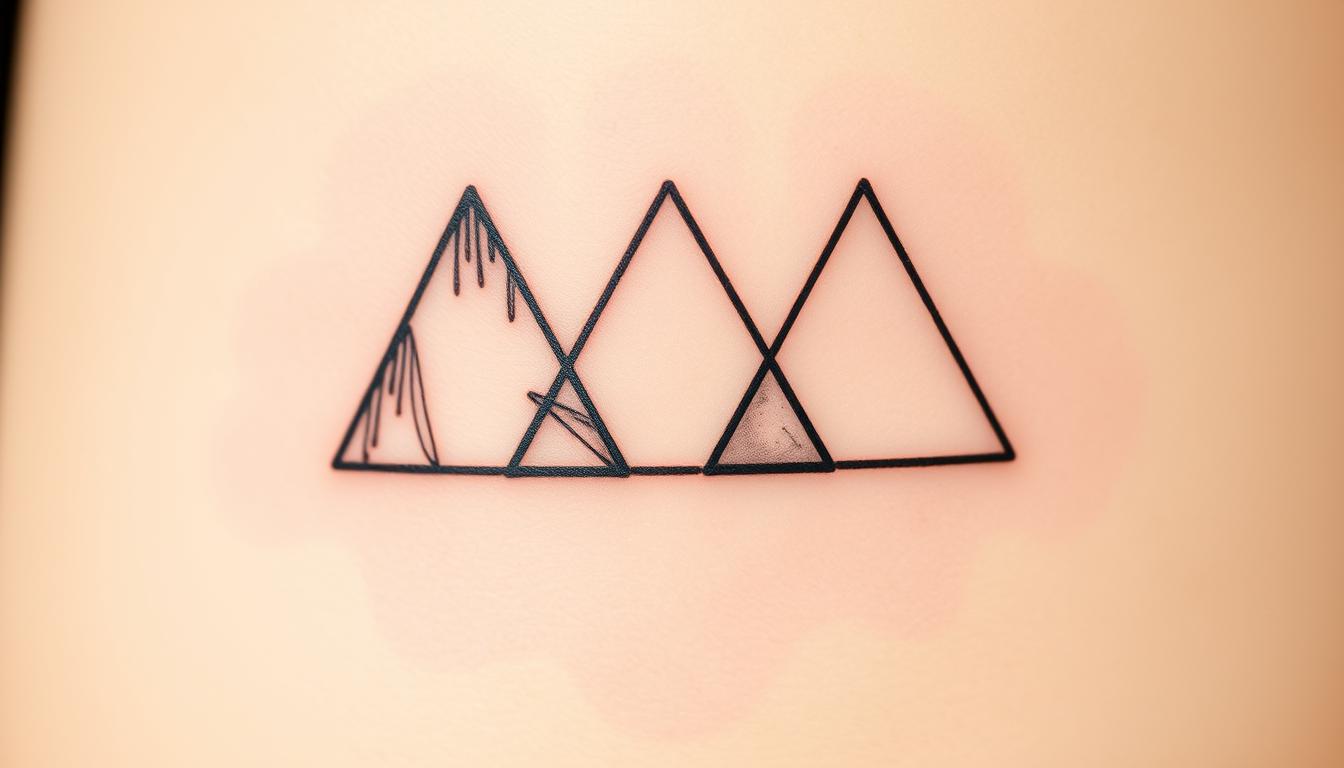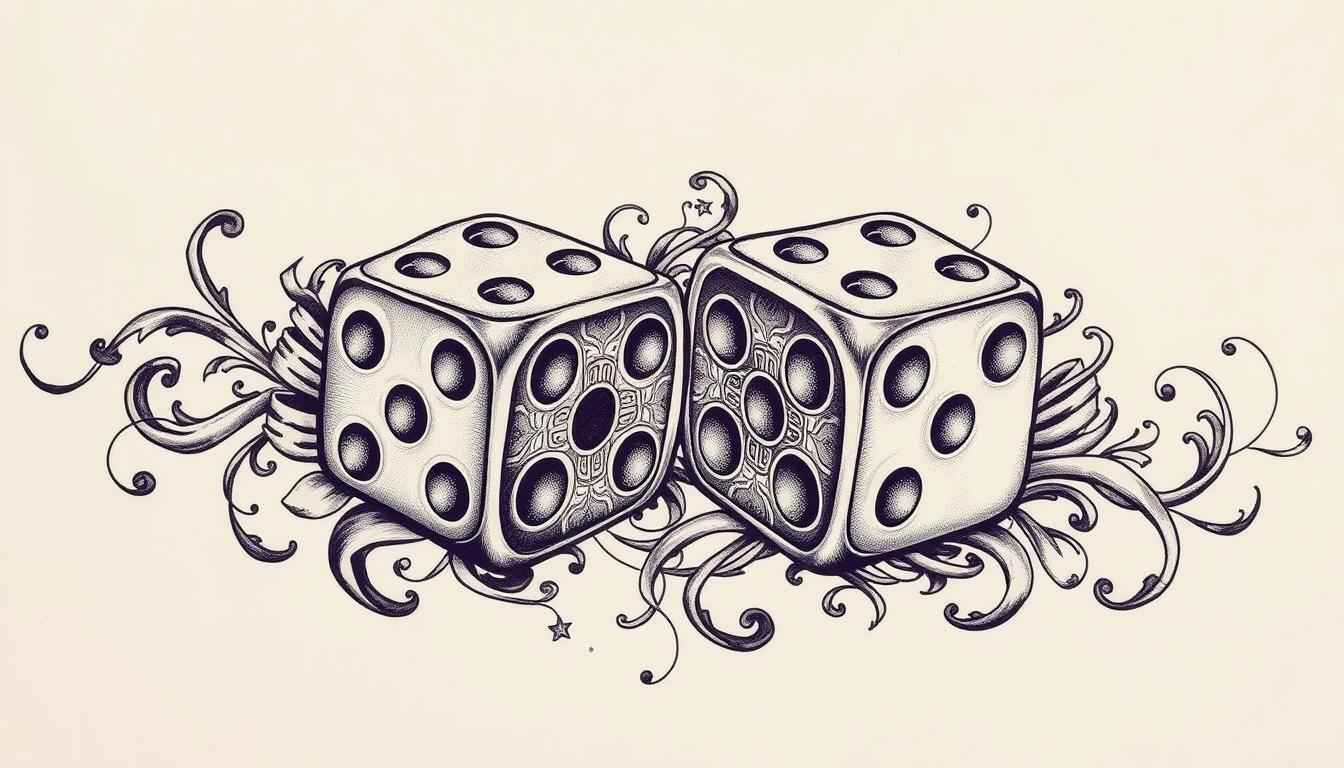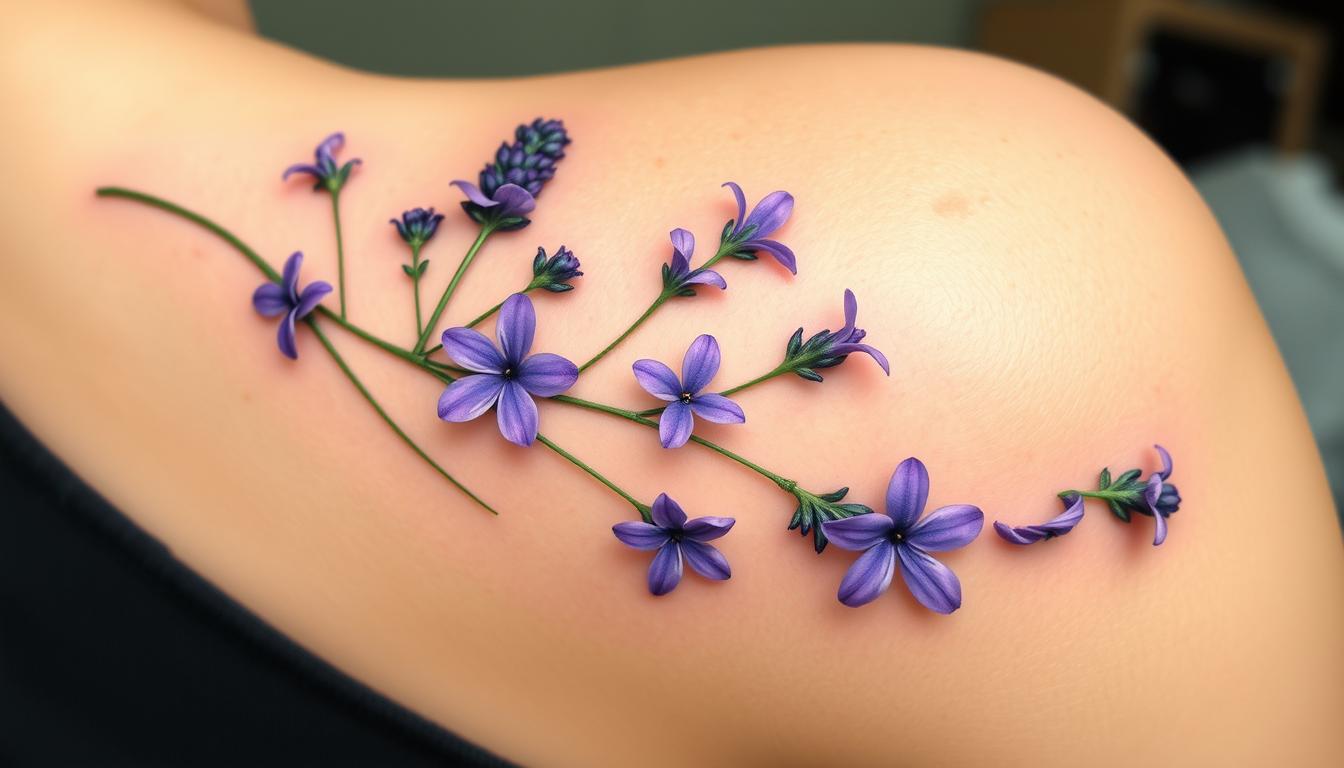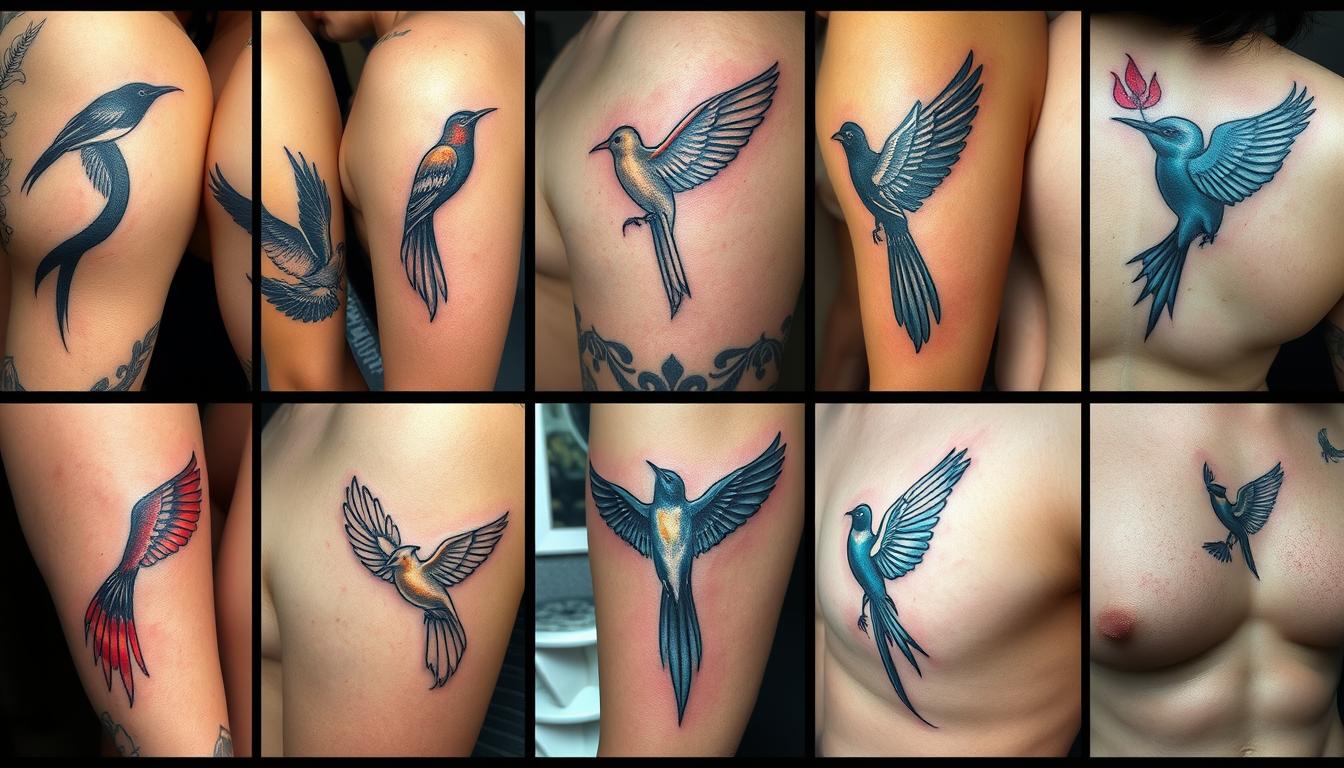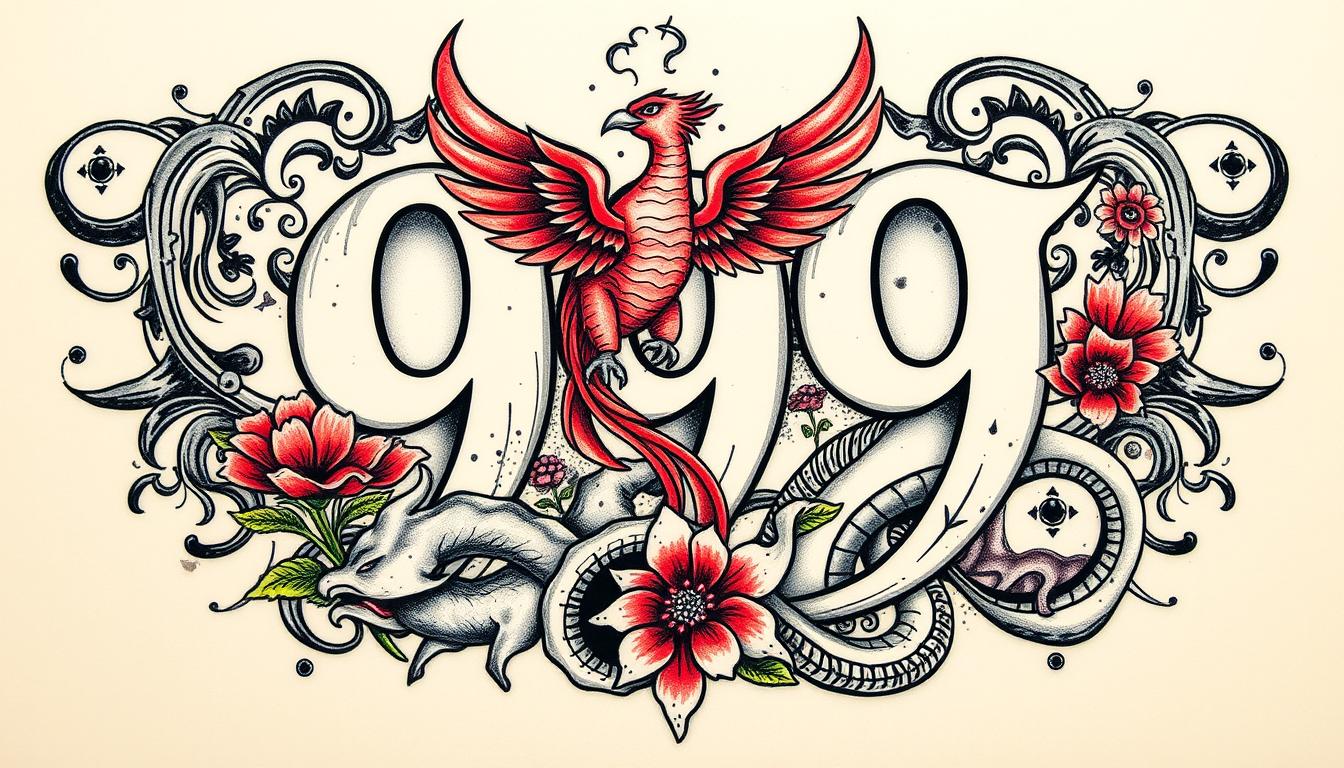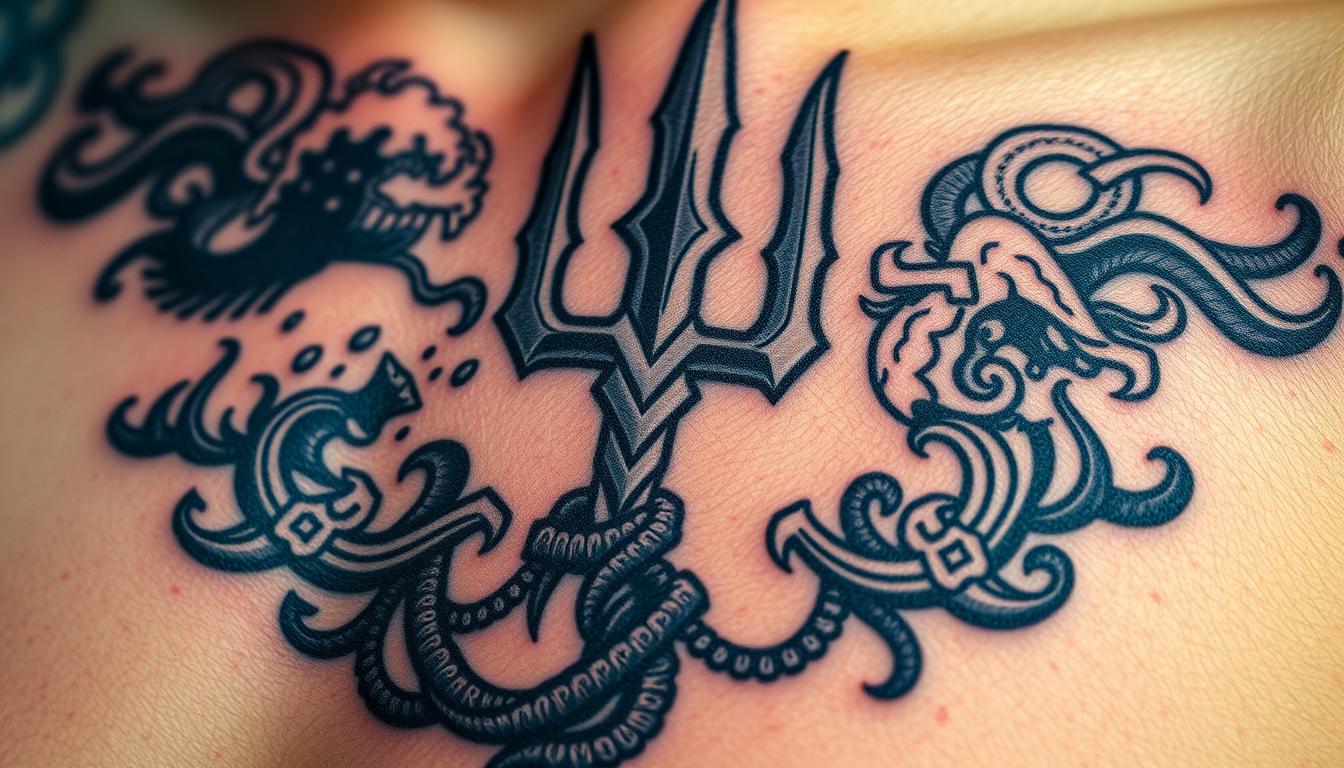Getting a new tattoo is exciting, but can you celebrate with a drink afterward? Many wonder about the effects of alcohol on tattoo healing. This article will explore the relationship between alcohol consumption and tattoo aftercare, covering why it’s best to avoid drinking before and after getting inked. We’ll also discuss the recommended timeframe for abstaining from alcohol and provide alternative ways to relax during your tattoo session. By following these guidelines, you’ll ensure optimal healing and preserve the quality of your new tattoo.
Key Takeaways
- Alcohol impairs tattoo healing by reducing blood flow and hindering nutrient delivery to the skin
- Alcohol consumption increases bleeding risks and can compromise tattoo quality and longevity
- Abstain from alcohol for at least 48-72 hours after getting a tattoo to prevent complications
- Practice mindfulness, light exercise, or seek support to reduce pre-tattoo anxiety instead of drinking
- Follow proper aftercare instructions and maintain a healthy diet for optimal tattoo healing
Understanding the Effects of Alcohol on Tattoo Healing
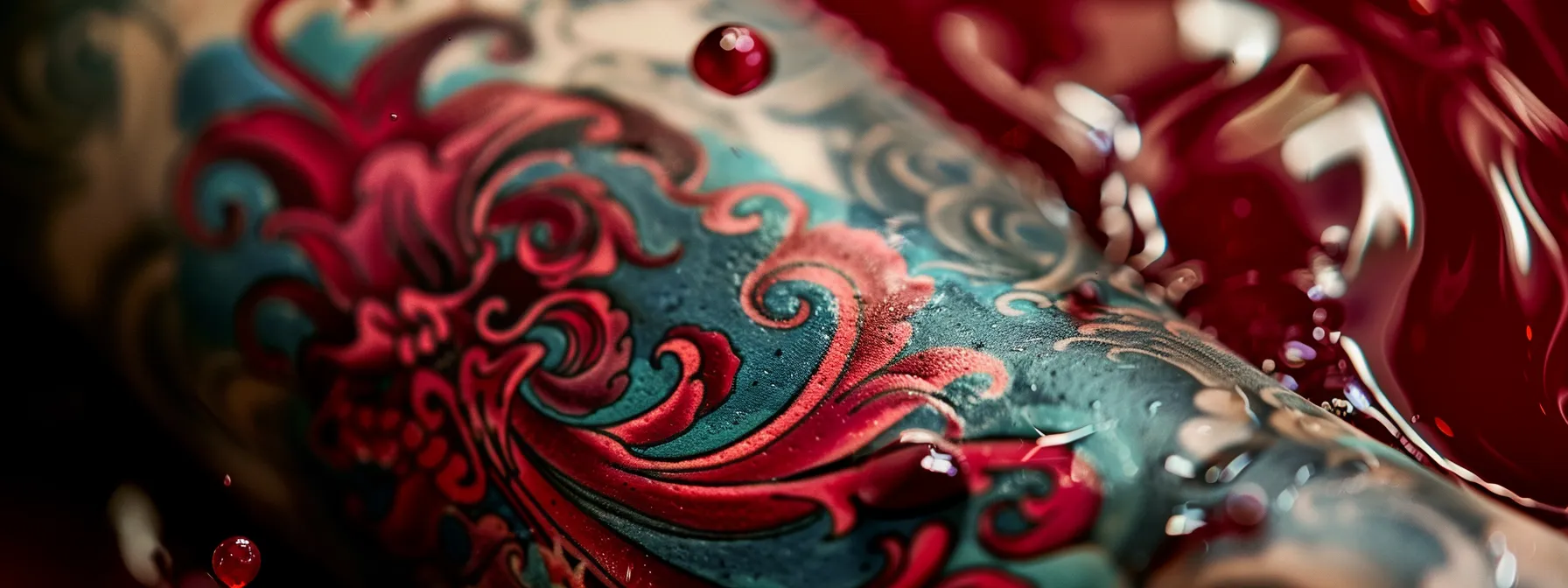
Alcohol consumption can significantly impact tattoo healing. It impedes the body’s natural healing process, affects skin regeneration and tattoo vibrancy, and has blood-thinning properties that influence ink retention. Understanding these effects is crucial for proper tattoo aftercare. This section examines how alcohol interferes with nutrition, increases bleeding risk, and may heighten anxiety during the healing process.
How Alcohol Impedes the Body’s Natural Healing Process
Alcohol consumption significantly impairs the body’s natural healing process after getting a tattoo. It affects the dermis, the layer of skin where tattoo ink is deposited, by reducing blood flow and hindering the delivery of essential nutrients and oxygen to the healing tissue. This can lead to increased pain, prolonged recovery time, and a higher risk of developing a rash or infection. Additionally, alcohol’s immunosuppressive effects may weaken the body’s defenses against pathogens, potentially increasing the risk of contracting infections such as hepatitis B during the healing process.
The Impact of Alcohol on Skin Regeneration and Tattoo Vibrancy
Alcohol consumption negatively impacts skin regeneration and tattoo vibrancy. It dehydrates the body, reducing skin elasticity and hindering the healing process. This can lead to faded or blurred tattoos, as alcohol interferes with the skin’s ability to retain ink. Additionally, alcohol’s blood-thinning properties may cause excessive bleeding during the tattooing process, affecting ink absorption. To maintain tattoo vibrancy, it’s crucial to avoid alcohol and opt for hydrating alternatives like caffeine-free beverages during the healing period. Some key considerations include:
- Avoid alcohol to prevent dehydration and maintain skin elasticity
- Choose hydrating alternatives to support proper ink retention
- Be aware of potential interactions between alcohol and antibiotic treatments
- Monitor the healing process closely to ensure optimal tattoo vibrancy
Blood Thinning Properties of Alcohol and Their Effect on Tattoos
Alcohol’s blood-thinning properties significantly affect tattoo healing and ink retention. When blood alcohol content rises, blood vessels dilate, increasing blood flow and potentially causing excessive bleeding during the tattooing process. This can interfere with proper ink placement and absorption, potentially compromising the tattoo’s appearance and longevity. Additionally, alcohol’s impact on nerve function may alter pain perception, leading to increased discomfort during healing and potentially affecting the overall health of the tattooed skin.
Reasons to Avoid Alcohol Before Getting Inked
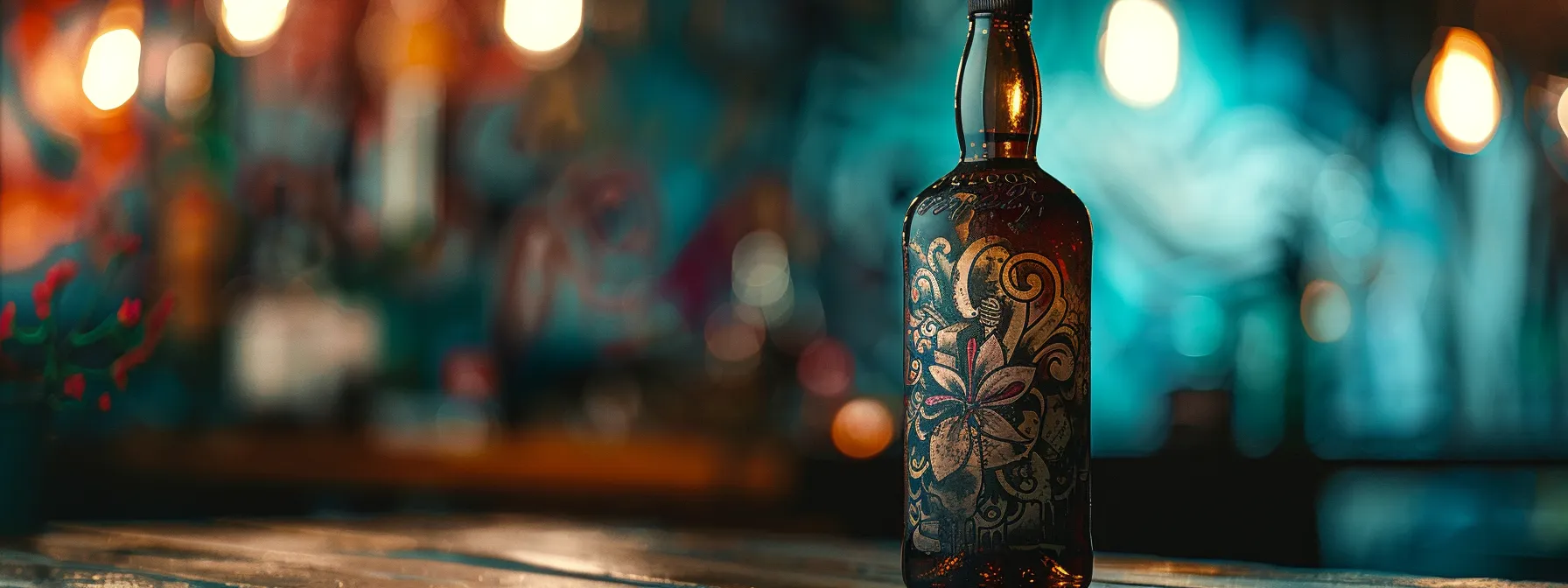
Consuming alcohol before getting a tattoo can lead to increased bleeding risks, impaired decision-making, and dehydration effects on skin elasticity. These factors can significantly impact the tattoo procedure and healing process. A healthy diet and avoiding alcohol are crucial for optimal results. Understanding these risks helps individuals make informed choices about tattoo timing and aftercare.
Increased Bleeding Risks During the Tattoo Procedure
Alcohol consumption before a tattoo procedure significantly increases bleeding risks due to its blood-thinning effects. This excessive bleeding can lead to inflammation, irritation, and potential dermatitis, compromising the tattoo’s quality and healing process. The increased blood flow can wash away ink during the procedure, resulting in a less vibrant tattoo and potentially requiring touch-ups. To minimize these risks, individuals should avoid alcohol and use gentle, fragrance-free soap for cleansing before and after the tattoo session.
Alcohol-Induced Impairment and Tattoo Decision-Making
Alcohol-induced impairment significantly impacts tattoo decision-making, potentially leading to regrettable choices. Intoxication affects judgment, increasing the likelihood of selecting inappropriate designs or locations that may hinder the healing process. Alcohol consumption also reduces the body’s ability to produce collagen and retain moisture, essential factors for proper tattoo healing. Additionally, the antioxidant properties of non-alcoholic beverages are crucial for skin recovery, which alcoholic beverages lack. To ensure optimal healing and satisfaction with the final result, individuals should avoid alcohol before getting inked and focus on maintaining proper hydration:
- Stay hydrated with water and electrolyte-rich beverages
- Consume foods rich in vitamins A and C to support collagen production
- Choose antioxidant-rich drinks to promote skin healing
- Avoid alcoholic beverages for at least 24 hours before the tattoo appointment
Dehydration Effects on Skin Elasticity and Tattoo Application
Alcohol consumption before getting a tattoo can lead to severe dehydration, significantly impacting skin elasticity and the tattoo application process. Dehydrated skin becomes less pliable, making it more challenging for the tattoo artist to work effectively and potentially causing increased discomfort during the procedure. This can result in a suboptimal tattoo application, potentially affecting the wound healing process and increasing the risk of complications such as infections or delayed healing. To mitigate these effects, individuals should avoid alcohol and stay well-hydrated before their tattoo appointment, ensuring their skin is in optimal condition for the tattooing process and subsequent healing.
Is It Safe to Drink Alcohol After Getting a Tattoo?
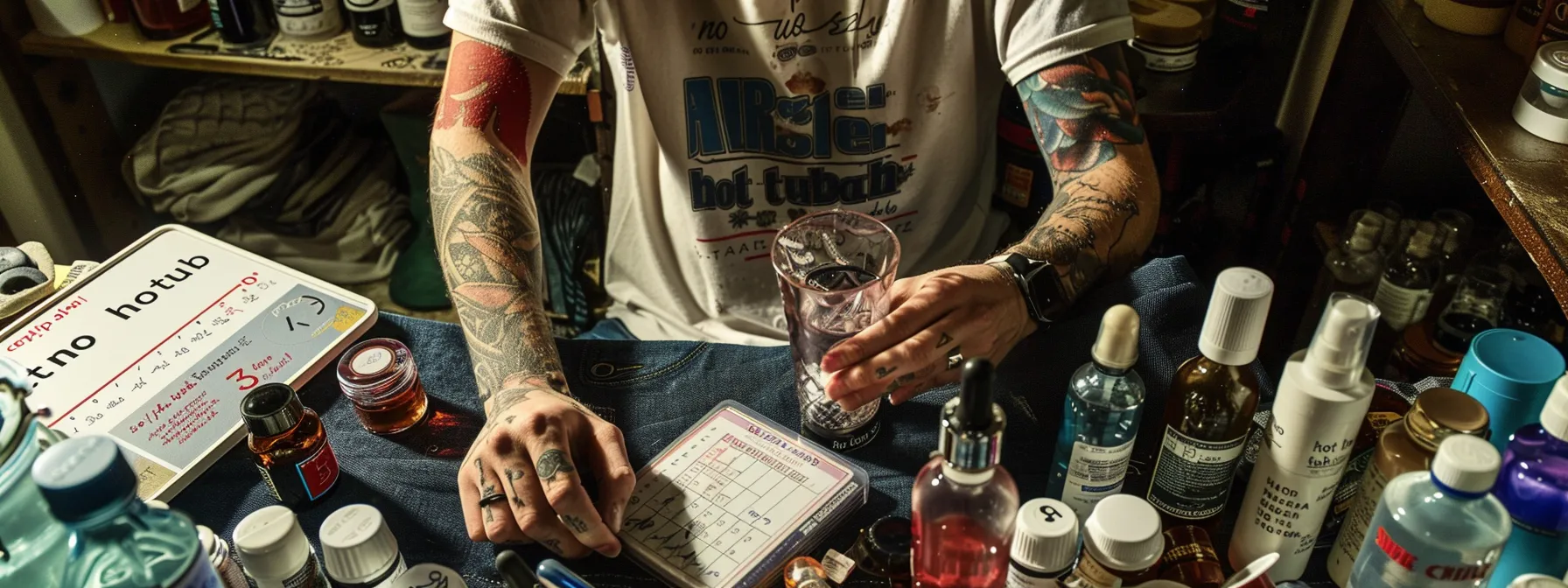
Consuming alcohol after getting a tattoo can lead to potential complications, prolonged healing time, and heightened infection risks. This section examines how alcohol affects the healing process, including its impact on lotion absorption, drug interactions, and mental health. Understanding these risks helps individuals make informed decisions about post-tattoo care, including avoiding hot tubs and managing allergy concerns.
Potential Complications From Post-Tattoo Alcohol Consumption
Alcohol consumption after getting a tattoo can lead to several potential complications, including impaired wound healing and increased risk of infection. The body’s ability to repair itself diminishes when alcohol is present, potentially prolonging the healing process and affecting the tattoo’s final appearance. Individuals with type 2 diabetes should be particularly cautious, as alcohol can interfere with blood sugar levels and further complicate skin care. Additionally, smoking while drinking can exacerbate these issues, as both habits negatively impact circulation and nutrient delivery to the healing tattoo site. Maintaining a healthy diet and avoiding alcohol during the initial healing phase is crucial for optimal results.
Alcohol’s Role in Prolonging Tattoo Healing Time
Alcohol consumption after getting a tattoo significantly prolongs healing time by impeding the body’s natural recovery processes. It dilates blood vessels, potentially leading to excessive bleeding and increased risk of infection, including hepatitis. The use of vaseline or other petroleum-based products in combination with alcohol can further complicate healing, as they may trap bacteria near the tattoo site. Tattoo artists often advise against alcohol consumption during the initial healing phase to prevent complications and ensure proper ink retention. Patients with pre-existing conditions should be particularly cautious, as alcohol can exacerbate health issues and interfere with the tattoo machine’s effectiveness during touch-ups. To promote optimal healing, individuals should follow these guidelines:
- Avoid alcohol for at least 48-72 hours after getting tattooed
- Stay hydrated with water and electrolyte-rich beverages
- Follow proper aftercare instructions provided by the tattoo artist
- Use recommended, alcohol-free moisturizers to keep the tattoo site hydrated
- Monitor the tattoo for signs of infection or adverse reactions
Heightened Infection Risks Associated With Alcohol Intake
Alcohol consumption after getting a tattoo significantly increases infection risks due to its immunosuppressive effects. The body’s ability to fight off harmful bacteria is compromised, making the tattooed area more susceptible to infections such as hepatitis C. Proper aftercare, including keeping the tattoo covered with a bandage or plastic wrap, becomes crucial during this vulnerable period. Individuals should be aware that a hangover can further weaken the immune system, potentially exacerbating the risk of infection and affecting the formation of scar tissue. To minimize these risks, tattoo recipients should follow these precautions:
- Avoid alcohol consumption for at least 48-72 hours post-tattoo
- Keep the tattoo clean and covered as instructed by the artist
- Monitor the tattoo site for signs of infection or unusual healing
- Stay hydrated and maintain a healthy diet to support immune function
- Consult a healthcare professional if any concerns arise during the healing process
Recommended Timeframe for Abstaining From Alcohol Post-Tattoo
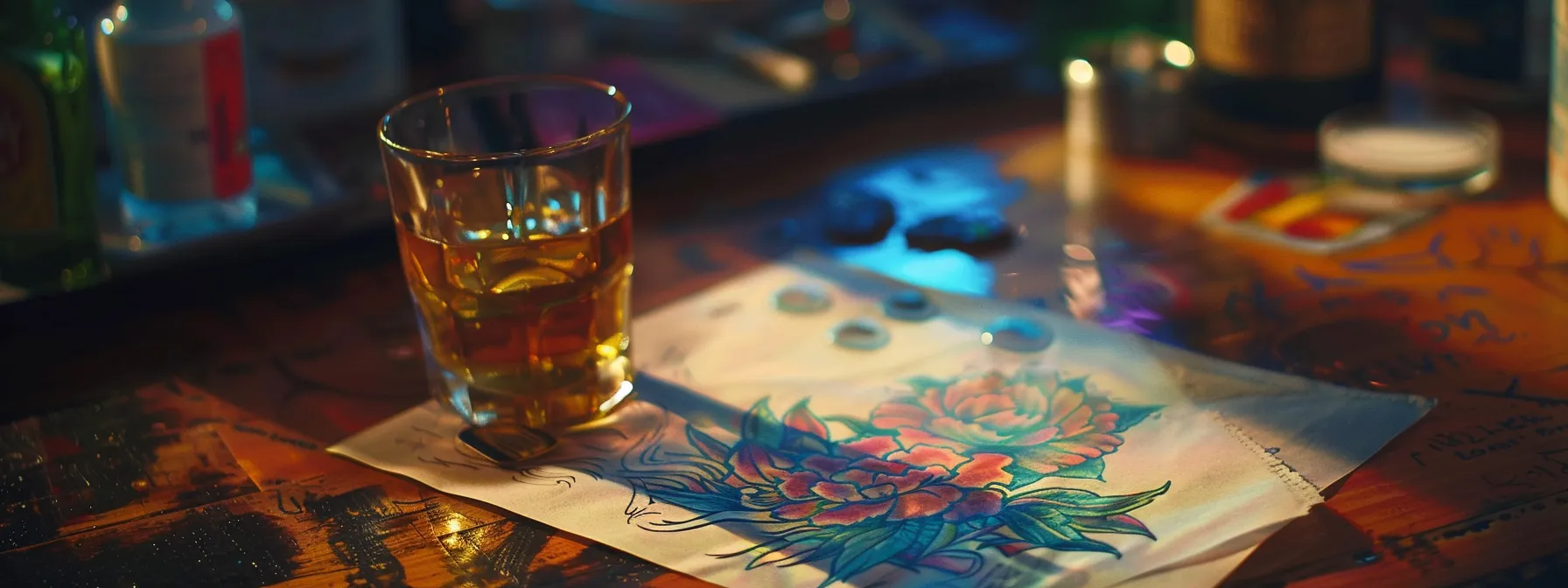
Determining the appropriate timeframe for abstaining from alcohol after getting a tattoo is crucial for proper healing. This section explores guidelines for small and large tattoos, signs of complete healing, and tips for safely reintroducing alcohol. Tattoo artists recommend varying abstinence periods based on tattoo size and individual factors like diabetes. Understanding these aspects helps ensure optimal recovery and tattoo longevity.
Guidelines for Small vs. Large Tattoos
The recommended timeframe for abstaining from alcohol after getting a tattoo varies depending on the size of the tattoo. For small tattoos, experts generally advise avoiding alcohol for at least 48 hours, allowing the skin tissue to begin healing. Larger tattoos, which affect more skin surface area, may require a longer abstinence period of up to two weeks to prevent complications such as excessive itching or delayed healing. Individuals with conditions like psoriasis should exercise extra caution and may need to extend their alcohol-free period to ensure proper healing and minimize the risk of skin irritation.
Signs Your Tattoo Has Healed Completely
Complete tattoo healing is evidenced by several key signs. The skin over the tattoo should no longer be raised or swollen, and any scabs or flaking should have fully disappeared. The tattoo ink will appear settled and vibrant, with no cloudiness or fading. Coagulation processes should be complete, and the skin should feel smooth to the touch. While products like Aquaphor may have been used during initial healing, their use is no longer necessary at this stage. Individuals can consider tattoo removal only after full healing, typically 4-6 weeks post-procedure. Adequate vitamin C intake throughout the healing process supports collagen production, contributing to optimal tattoo appearance.
Tips for Reintroducing Alcohol Without Hindering Recovery
When reintroducing alcohol after tattoo healing, individuals should start slowly to minimize potential impact on their immune system. It’s advisable to begin with lower alcohol content beverages and monitor the tattoo site for any adverse reactions. Maintaining a healthy lifestyle, including proper hydration and nutrition, supports the body’s ongoing recovery process even after alcohol consumption resumes.
Alternative Ways to Relax Without Alcohol Before Your Tattoo Session

Exploring alternative relaxation methods before a tattoo session can help reduce anxiety without relying on alcohol. This section discusses practicing mindfulness and deep breathing techniques, engaging in light physical activity, and utilizing support from friends or professional counselors. These strategies offer effective ways to calm nerves and prepare for the tattooing process while maintaining optimal physical conditions for healing.
Practicing Mindfulness and Deep Breathing Techniques
Practicing mindfulness and deep breathing techniques can effectively reduce anxiety before a tattoo session without relying on alcohol. These methods help individuals stay present and calm, reducing stress hormones and promoting relaxation. Tattoo recipients can try guided meditation apps or simple breathing exercises to center themselves and prepare mentally for the procedure. These techniques not only help manage pre-tattoo jitters but also contribute to better pain management during the tattooing process:
- Practice 4-7-8 breathing: Inhale for 4 seconds, hold for 7, exhale for 8
- Use body scan meditation to release tension
- Focus on positive affirmations related to the tattoo experience
- Engage in progressive muscle relaxation to reduce physical stress
- Utilize mindfulness apps for guided relaxation sessions
Engaging in Light Physical Activity to Reduce Anxiety
Engaging in light physical activity before a tattoo session can effectively reduce anxiety without relying on alcohol. A brisk walk, gentle stretching, or yoga can help release endorphins, promoting relaxation and reducing stress levels. These activities also improve blood circulation, which can aid in the tattoo healing process. Individuals should choose low-impact exercises that don’t cause excessive sweating or muscle fatigue, ensuring they remain comfortable during the tattooing procedure.
Utilizing Support From Friends or Professional Counselors
Utilizing support from friends or professional counselors can provide valuable emotional assistance before a tattoo session. Friends can offer encouragement and distraction, helping to alleviate pre-tattoo anxiety. For those experiencing significant nervousness, consulting a professional counselor can provide effective coping strategies and relaxation techniques. These support systems can help individuals maintain a calm mindset without resorting to alcohol consumption, ensuring optimal conditions for the tattooing process and subsequent healing:
| Support Type | Benefits |
|---|---|
| Friends | Emotional support, distraction, encouragement |
| Professional Counselors | Coping strategies, relaxation techniques, anxiety management |
Best Practices for Optimal Tattoo Healing
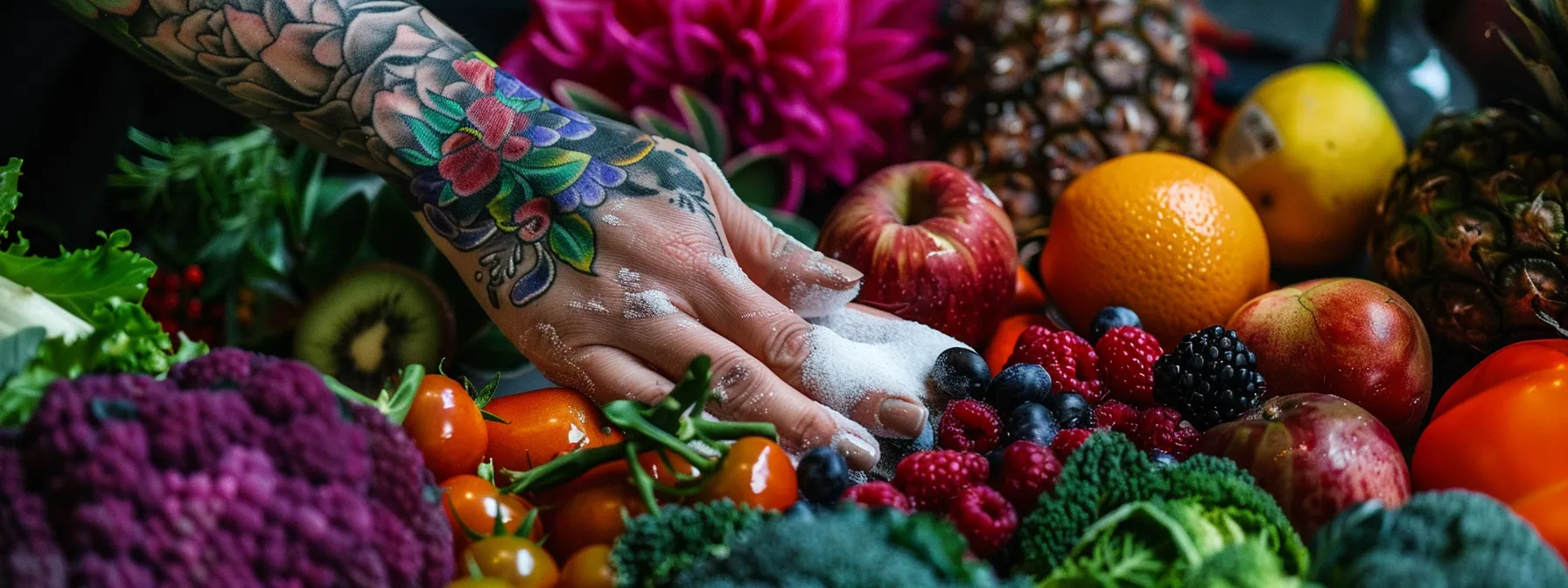
Optimal tattoo healing requires following proper aftercare instructions, maintaining a healthy diet, and avoiding activities that could damage the new tattoo. This section explores key practices for successful recovery, including adhering to artist-provided guidelines, consuming nutrient-rich foods, and protecting the tattoo from potential harm. Understanding these best practices helps ensure proper healing and long-lasting results.
Adhering to Proper Aftercare Instructions
Adhering to proper aftercare instructions is crucial for optimal tattoo healing. Tattoo artists provide specific guidelines tailored to each client’s unique tattoo and skin type. These instructions typically include keeping the tattoo clean and moisturized, avoiding direct sunlight, and refraining from scratching or picking at the tattooed area. Following these guidelines diligently helps prevent infections, promotes proper ink settling, and ensures the tattoo heals correctly, resulting in a vibrant and long-lasting piece of body art.
Maintaining a Healthy Diet to Support Recovery
Maintaining a healthy diet plays a crucial role in supporting tattoo recovery. Consuming nutrient-rich foods helps boost the immune system, promotes skin healing, and enhances ink retention. Individuals should focus on incorporating foods high in vitamins A and C, zinc, and protein, which aid in collagen production and skin repair. Staying hydrated by drinking plenty of water also supports the healing process, helping to flush out toxins and maintain skin elasticity.
Avoiding Activities That Could Damage Your New Tattoo
Avoiding activities that could damage a new tattoo is essential for proper healing. Individuals should refrain from swimming, soaking in hot tubs, or exposing the tattoo to direct sunlight for at least two weeks. Tight clothing or excessive friction can irritate the tattooed area, so loose-fitting garments are recommended. Tattoo recipients should also avoid intense physical activities that cause excessive sweating or stretching of the skin, as these can interfere with the healing process and potentially distort the tattoo’s appearance.
Conclusion
Alcohol consumption significantly impairs tattoo healing by hindering the body’s natural recovery processes, increasing infection risks, and potentially affecting the tattoo’s final appearance. Abstaining from alcohol before and after getting inked is crucial for optimal results, with recommended timeframes varying based on tattoo size and individual factors. Adopting alternative relaxation techniques and following proper aftercare instructions, including maintaining a healthy diet, are essential for successful tattoo healing. By understanding the effects of alcohol on tattoo healing and implementing best practices, individuals can ensure their new body art heals properly and maintains its vibrancy for years to come.









